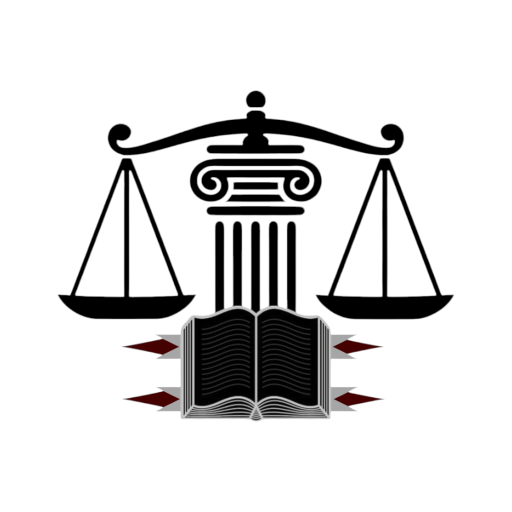BUILDING BLOCKS OF THE WORLD LEGAL SYSTEMS
INTRODUCTION:
The legal system of a country is deeply intertwined with its social, political, economic, and cultural framework. It is a fundamental part of a society that reflects its values, norms, and governance mechanisms. Legal systems are composed of principles, values, and operational norms that establish rights, duties, and responsibilities of citizens, ensuring that the law is upheld. In essence, the legal system provides structure and order to the political organization and social relations of a society.
INTERPRETATION OF THE TERM \”LEGAL SYSTEM\”:
According to Black\’s Law Dictionary:
A legal system is a body of rules of action or conduct prescribed by a controlling authority, which have legal binding force. Laws must be obeyed, and failure to comply results in legal consequences.
BASIC STRUCTURE OF THE LEGAL SYSTEM:
A legal system is shaped by:
-
The constitution, which outlines fundamental principles.
-
Operational norms that specify the rights and duties of citizens.
-
Various other sources of law, such as legislation, judicial decisions, and customs.
BUILDING BLOCKS OF THE LEGAL SYSTEM:
The essential components or \”building blocks\” of the world’s legal systems include the following:
-
Rule of Law
-
Separation of Powers
-
Judicial Review
-
Executive
-
Human Rights
1. RULE OF LAW:
The rule of law is a fundamental concept ensuring that law governs the nation, rather than arbitrary decisions by individual rulers.
-
Meaning: It signifies that no one is above the law, and all individuals, including those in power, are subject to the law.
-
Dicey’s Definition:
-
\”The rule of law means that no man is above the law and that every person should be treated in accordance with the law.\”
-
-
Rule of Law in the United Nations Charter:
-
The UN Charter emphasizes the importance of law and justice, aiming to establish conditions under which justice and international law are upheld.
-
-
UNO\’s Definition:
-
The Secretary-General of the UN defines the rule of law as a governance principle where laws are publicly promulgated, equally enforced, and independently adjudicated, consistent with international human rights norms and standards.
-
2. SEPARATION OF POWERS:
The separation of powers refers to the division of governmental authority into distinct branches to prevent the concentration of power in one entity.
-
Meaning:
-
According to Black\’s Law Dictionary, the separation of powers means the division of governmental authority into three branches: legislative, executive, and judicial, each with specific duties, ensuring no branch oversteps its constitutional limits.
-
-
Main Exponent:
-
Montesquieu, a French philosopher, is credited with popularizing the separation of powers theory in his work \”The Spirit of Laws\” (1748). Montesquieu argued that liberty can only be preserved by preventing any one person or body from holding too much power.
-
-
Theory Application:
-
The U.S. Constitution incorporated this theory, ensuring that each branch of government operates independently to safeguard individual freedoms.
-
3. JUDICIAL REVIEW:
Judicial review is the power of the judiciary to review and, if necessary, strike down laws or actions taken by the legislative or executive branches that violate the constitution.
-
Meaning:
-
According to Black\’s Law Dictionary, judicial review is the authority of courts to assess the constitutionality of legislative, executive, or administrative actions.
-
-
Landmark Case:
-
Marbury v. Madison (1803): This case established the principle of judicial review in the U.S., with Chief Justice John Marshall affirming that it is the judiciary\’s duty to interpret the law and decide if laws conflict with the constitution.
-
-
Objectives of Judicial Review:
-
To ensure the government stays within constitutional limits.
-
To protect civil liberties and rights.
-
To preserve the authority of the constitution.
-
4. EXECUTIVE:
The executive branch of government is tasked with implementing and enforcing laws, as opposed to creating (legislative) or interpreting them (judiciary).
-
Role in the Legal System:
-
The executive enforces the law as defined by the legislature and interpreted by the judiciary. While the executive cannot make or interpret laws, it plays a vital role in ensuring that laws are applied effectively and fairly.
-
-
Accountability:
-
The executive must maintain transparency, accountability, and responsibility in the execution of public business to preserve the rule of law and prevent abuses of power.
-
5. HUMAN RIGHTS:
Human rights are fundamental, inalienable rights that all humans are entitled to, regardless of their nationality, ethnicity, religion, or any other status. These rights are vital for the dignity and equality of individuals.
-
Nature of Human Rights:
-
Human rights are universal, indivisible, interdependent, and interrelated. Every individual is entitled to the protection of these rights.
-
-
Human Rights in the United Nations Charter:
-
The UN Charter recognizes that one of its purposes is to promote respect for human rights and fundamental freedoms for all individuals, regardless of race, gender, language, or religion.
-
CONCLUSION:
The legal system is integral to the functioning of a society, providing a framework for regulating conduct, resolving disputes, and upholding justice. The rule of law, separation of powers, judicial review, executive accountability, and human rights are the foundational blocks that ensure the integrity, fairness, and effectiveness of the legal system. Each of these components plays a crucial role in safeguarding individual liberties, maintaining societal order, and ensuring that the law is applied consistently and justly across all levels of society.
